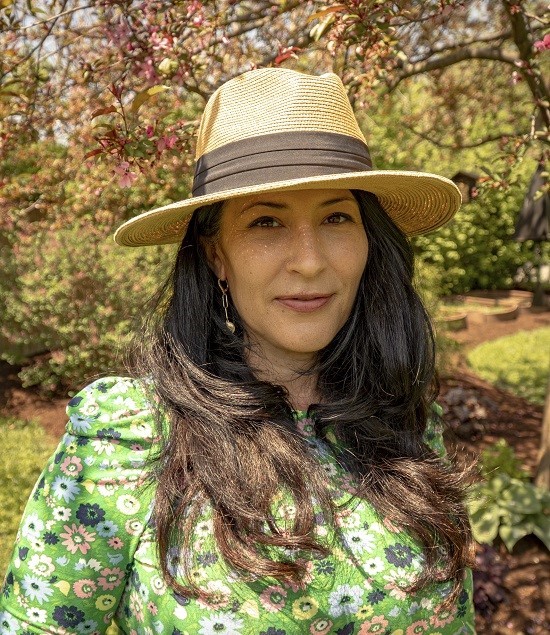When
Ada Limón quit her marketing job to try writing full time, she assumed that would
mean writing fiction. So she spent her working hours imagining the lives of
other people. Then, she said, she would plunge into poetry, where she could be
herself.
اضافة اعلان
She never published
a novel. But as a poet, she has been awarded the highest honor in her field: On
Tuesday, the Library of Congress announced she will become the next poet
laureate of the US.
 Ada Limón, the 24th US poet laureate, at her home in Lexington, Kentucky Poetry, she said, can help the nation “become whole again” in a fraught, divided moment. (Photo: NYT)
Ada Limón, the 24th US poet laureate, at her home in Lexington, Kentucky Poetry, she said, can help the nation “become whole again” in a fraught, divided moment. (Photo: NYT)
Limón, who has
published six books, will begin her tenure this fall as the 24th poet laureate,
a position that has been held by some of the country’s most celebrated poets,
including Louise Glück, Juan Felipe Herrera, Robert Hass and Tracy K. Smith.
The poet laureate
has few required duties, but becomes an ambassador for the form. Smith focused
on increasing access to poetry in rural areas, for example. Joy Harjo, the
current poet laureate and a member of the Muscogee Creek Nation, created a
project called “Living Nations, Living Words”, which included a map that
highlights Native American poets and their work.
Limón is just
starting to think about a project she might pursue, but she has ideas about how
poetry can help at such a fraught time in the US.
“Right now, so
often we are going numb to grief and numb to tragedy and numb to crisis,” she
said.
“Poetry is a way
back in, to recognizing that we are feeling human beings. And feeling grief and
feeling trauma can actually allow us to feel joy again.”
In a poem called
“Dead Stars”, she encourages her readers to lean into their strength:
Look, we are not
unspectacular things. We’ve come this far, survived this much. What would
happen if we decided to survive more? To love harder?
What if we stood up
with our synapses and flesh and said, No.
Limón, 46, who is
originally from California, lives in Lexington, Kentucky, with her husband,
Lucas Marquardt; their pug, Lily Bean; and an exceptionally old cat named
Olive. She hosts a poetry podcast called “The Slowdown” — which was started by
Smith during her time as poet laureate — and is on the faculty in the Master of
Fine Arts program at Queens University of Charlotte, in North Carolina. She has
been awarded a Guggenheim fellowship and a National Book Critics Circle Award,
and has been a finalist for the National Book Award.
Her melodic poems,
which embrace the orality of poetry and language, often touch on the natural
world, which she uses as much more than just a setting. Trees, for example,
become characters in her poems; sometimes they dance. (The American linden
sways nonplussed by the storm, / a bounce here, a shimmy there, just shaking
like music / left over from the night’s end wafting into the avenues before
sleep.) It is in this context, too, that she hopes to be an ambassador.
“I think that we
have lost our reciprocal relationship with the earth,” she said, “and poetry
has the ability to draw attention to the natural world, even if it is the tree
in your backyard or the pigeon on the street.”
The post of poet
laureate is an apolitical position, which might seem limiting in the face of
the country’s sharp political divide. But the restriction, she said, does not
feel like a challenge, because of poetry’s endless possibilities.
“It has the
possibility to show us rage, to connect with our fear, to celebrate joy, to
make room for the whole spectrum of human emotions,” she said.
“Great poetry is the place where we come to get the strength
to heal, to become whole again and to then recommit to the world.”
Read more Books
Jordan News









